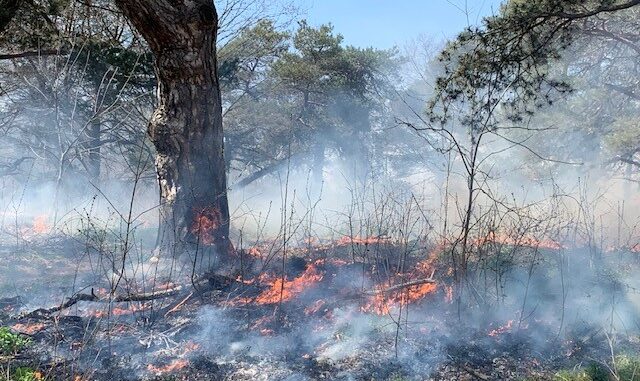
Later this month, the City of Toronto will conduct traditional and prescribed burns – used across North America – in High Park, as has happened for over two decades and as part of a long-term management plan to proactively protect rare Black Oak Savannahs.
A traditional and prescribed burn is a deliberately set and carefully controlled fire that burns low to the ground and consumes dried leaves, small twigs and grass stems but does not harm larger trees. Toronto’s Official Tree, the oak tree, has particularly thick, fire-resistant bark.
The burn will take place over one day at several locations within the park and is dependent on weather conditions, which are being monitored so that the burns can take place when optimal conditions are expected. The date is selected 24 to 48 hours in advance of the burn based on the forecast.
High Park will be closed to vehicular access on the day of the burn and people will be restricted from entering some areas. Park users should expect limited access near active burn sites with portions of some multi-use trails being temporarily closed to cyclists and pedestrians for 30 to 45 minutes between the hours of 11:30 a.m. and 6:00 p.m. Notices will be placed at park entrances and in the surrounding community to advise the public of when the burn will take place.
#CityOfTO planning traditional and prescribed burns in High Park to sustain and reinvigorate threatened habitat
News release: https://t.co/Oxs6fCGuIK pic.twitter.com/zvkIWVcOpK
— City of Toronto (@cityoftoronto) March 11, 2024
Indigenous collaboration
Prior to European settlement, Indigenous peoples used traditional burns to care for and maintain fire-dependent ecosystems including the Black Oak woodlands and Savannahs in High Park. Recognizing this important history, the City engages with Indigenous representatives to incorporate Indigenous knowledge and ceremony into the High Park burn.
In collaboration with Indigenous Land Stewardship Circle and Elder Henry Pitawanakwat, the burn holds the name of Biinaakzigewok Anishnaabeg, which means “the responsibility for a cleansing fire by all Native Peoples” in Anishinaabemowin.
Creating a burn plan
The City has contracted a fire boss with extensive experience with complex burns to create the 2024 burn plan and implement it with assistance from City staff. The City has safely executed traditional and prescribed burns in High Park for more than two decades.
Under ideal weather conditions, the smoke from the burns will not affect surrounding neighbourhoods. However, it is possible that some smoke will reach residential areas near the parks. People with asthma and those who are highly sensitive to poison ivy should limit their exposure to the smoke by staying inside and keeping windows closed. Some people may choose to leave the general area of the park on the day of the burn if concerned about the smoke.
Prescribed burns are crucial to save rare vegetation communities at risk of extinction not only in Toronto but throughout North America.
Results of the 2024 burn will be assessed and additional forest management measures will be implemented as required. Those measures may include species control, planting of native trees, shrubs and grasses as well as ongoing site maintenance.
Detailed information about the traditional and prescribed burn is available on the City’s Prescribed Burn webpage: www.toronto.ca/services-paymen
Quotes:
“Prescribed burns are a historically successful Indigenous practice for forest sustainability that we continue to use in High Park. These burns are helping Toronto’s new Arboreal Emblem and Official Tree, the oak, to survive and thrive in its unique urban ecosystem.”
– Deputy Mayor Jennifer McKelvie (Scarborough-Rouge Park), Chair of the Infrastructure and Environment Committee
“Maintaining and protecting the rare black oak woodlands and savannahs in High Park is of immense benefit for all who enjoy the majesty of High Park, residents and visitors alike.”
– Councillor Gord Perks (Parkdale-High Park)
SOURCE City of Toronto

Leave a Reply